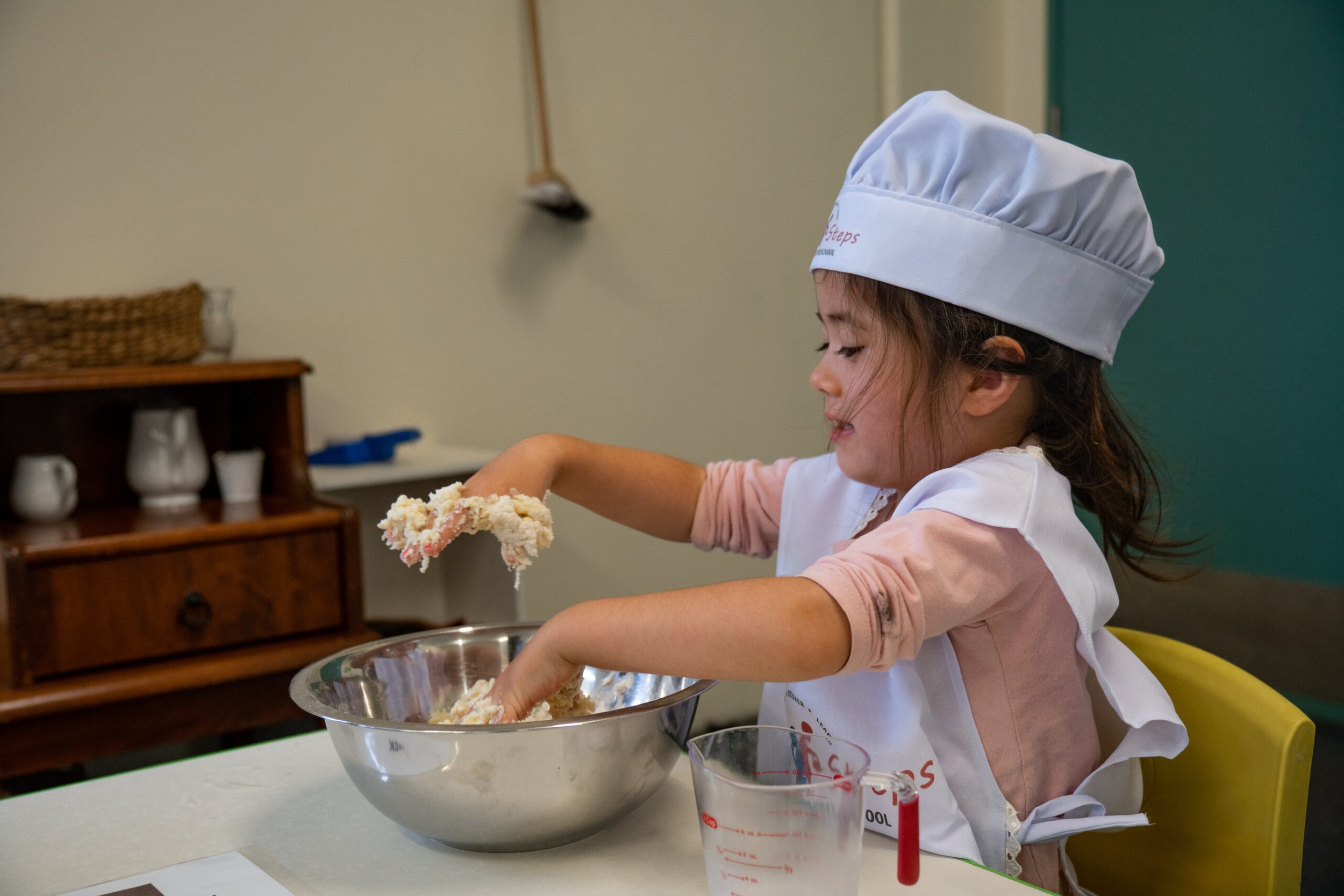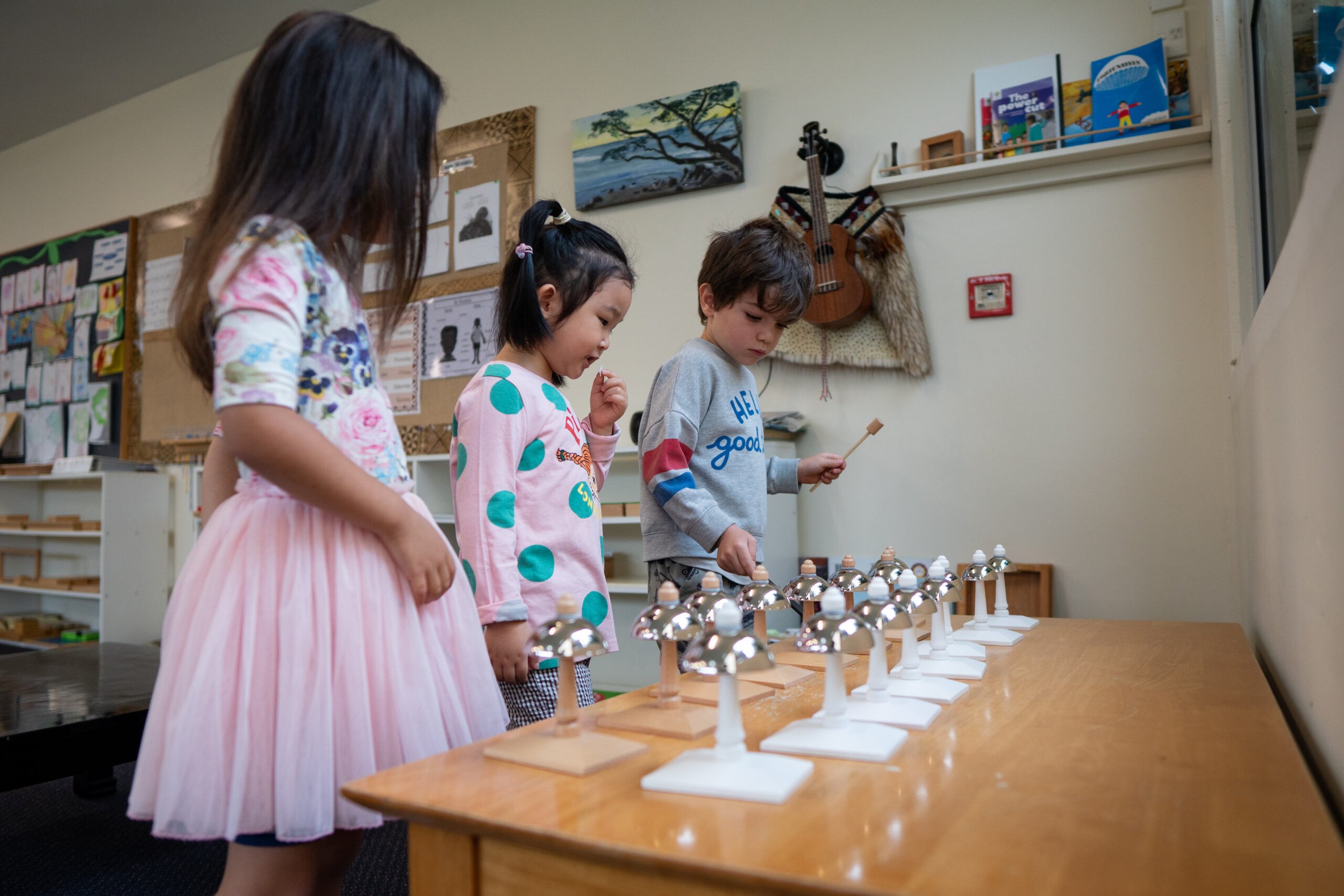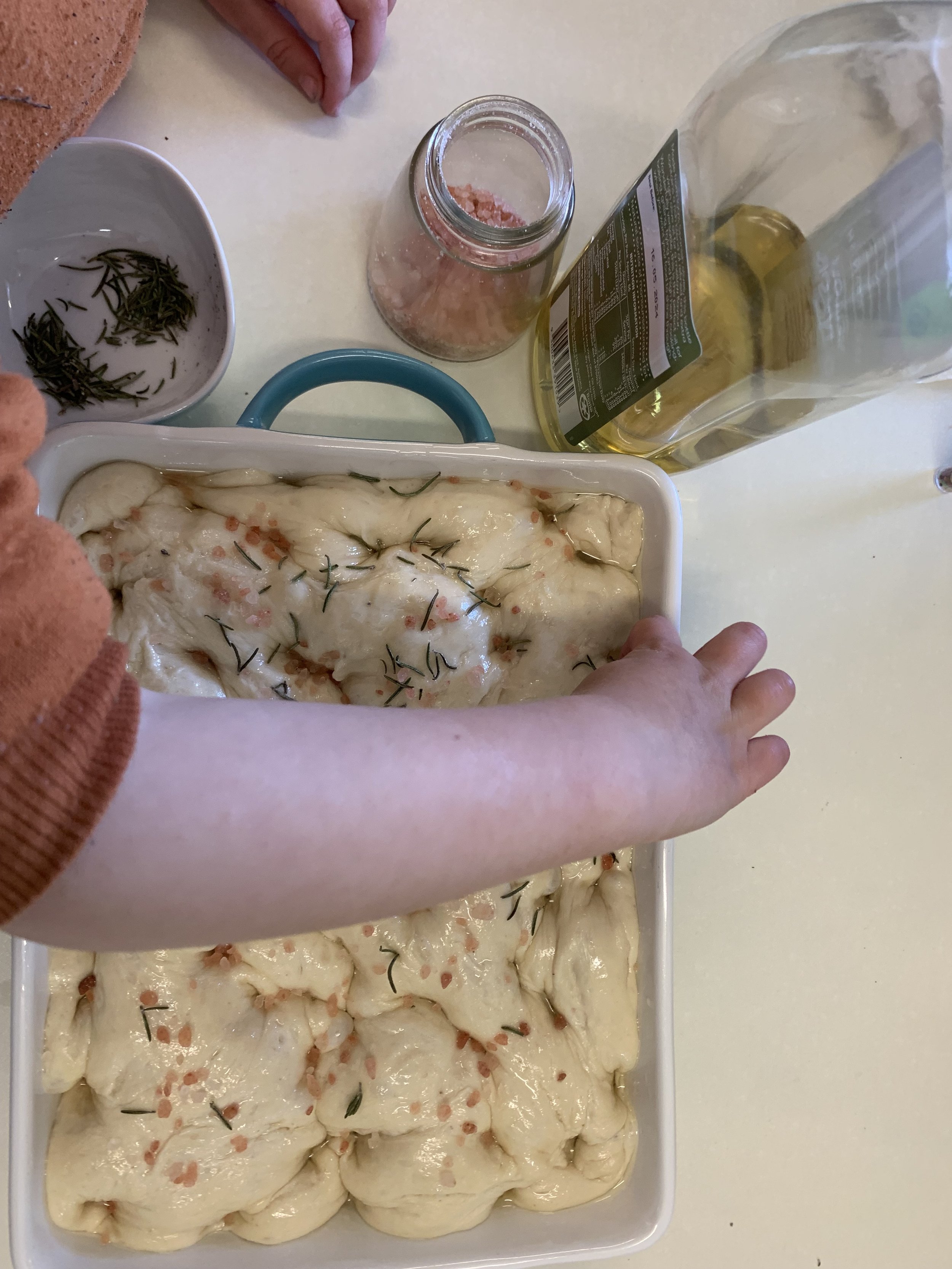





Our Montessori Curriculum
-
Practical life activities in the Montessori environment give children an understanding of their surroundings and how they function. These activities reflect tasks they observe at home and include various types of work that children enjoy. They also take pleasure in maintaining a beautiful environment for others to use. This work builds their self-esteem and provides them with a sense of value. Additionally, practical life activities develop manual dexterity. Every exercise in this area has a purposeful and useful objective.
-
The term "Sensorial" comes from the word "senses." Sensorial exercises were designed by Maria Montessori to cover every quality that can be perceived by the senses, such as size, shape, composition, texture, loudness or softness, matching, weight, and temperature.
The purpose and aim of these exercises are for children to acquire a clear consciousness that allows them to make classifications in their environment. Maria Montessori believed that sensorial experiences begin at birth, with the child being a "sensorial explorer."
-
In our Montessori classroom, the concepts covered include numeration, the decimal system, computation, the arithmetic tables, whole numbers, fractions, and positive numbers.
We offer these activities to children during the final two years of the first plane of development, which encompasses ages four to six.
-
We believe that language is a means of communicating ideas or feelings through the use of conventionalized sounds and signs, encompassing both spoken and written forms. This enables individuals to become fully articulate, express themselves effectively in writing, read with ease, and fully comprehend the thoughts of others.
-
We begin our study with children according to their home culture, providing them with a rich experience of the culture in which they live. From there, we expand their knowledge to include other cultures and places. As with arts and music, the directress follows the children’s interests and caters to them individually. Children have a great natural interest in living things, and biology, which is the study of living organisms, plants, and animals, nurtures this curiosity. The two major areas of biology are zoology and botany.
